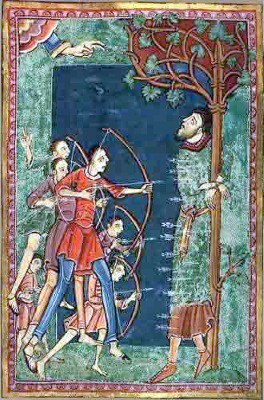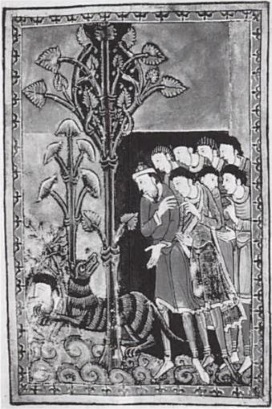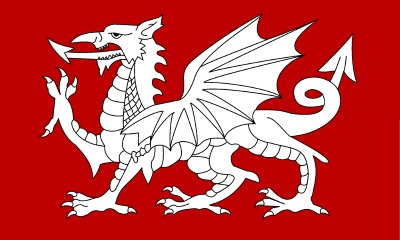
Catena Aurea by St. Thomas Aguinas
18:35–43
35. And it came to pass, that as he was come nigh unto Jericho, a certain blind man sat by the way side begging:
36. And hearing the multitude pass by, he asked what it meant.
37. And they told him, that Jesus of Nazareth passeth by.
38. And he cried, saying, Jesus, thou Son of David, have mercy on me.
39. And they which went before rebuked him, that he should hold his peace: but he cried so much the more, Thou Son of David, have mercy on me.
40. And Jesus stood, and commanded him to be brought unto him: and when he was come near, he asked him,
41. Saying, What wilt thou that I shall do unto thee? And he said, Lord, that I may receive my sight.
42. And Jesus said unto him, Receive thy sight: thy faith hath saved thee.
43. And immediately he received his sight, and followed him, glorifying God: and all the people, when they saw it, gave praise unto God.
GREGORY. (Hom. 2. in Ev.) Because the disciples being yet carnal were unable to receive the words of mystery, they are brought to a miracle. Before their eyes a blind man receives his sight, that by a divine work their faith might be strengthened.
THEOPHYLACT. And to shew that our Lord did not even walk without doing good, He performed a miracle on the way, giving His disciples this example, that we should be profitable in all things, and that nothing in us should be in vain.
AUGUSTINE. We might understand the expression of being nigh to Jericho, as if they had already gone out of it, but were still near. It might, though less common in this sense, be so taken here, since Matthew relates, that as they were going out of Jericho, two men received their sight who sat by the way side. There need be no question about the number, if we suppose that one of the Evangelists remembering only one was silent about the other. Mark also mentions only one, and he too says that he received his sight as they were going out of Jericho; he has given also the name of the man and of his father, to let us understand that this one was well known, but the other not so, so that it might come to pass that the one who was known would be naturally the only one mentioned. But seeing that what follows in St. Luke’s Gospel most plainly proves the truth of his account, that while they were yet coming to Jericho, the miracle took place, we cannot but suppose that there were two such miracles, the first upon one blind man when our Lord was coming to that city, the second on two, when He was departing out of it; Luke relating the one, Matthew the other.
PSEUDO-CHRYSOSTOM. (Hom. de cæco et Zacchæo) There was a great multitude gathered round Christ, and the blind man indeed knew Him not, but felt a drawing towards Him, and grasped with his heart what his sight embraced not. As it follows, And when he heard the multitude passing by, he asked what it was. And those that saw spoke indeed according to their own opinion. And they told him that Jesus of Nazareth passeth by. But the blind man cried out. He is told one thing, he proclaims another; for it follows, And he cried out, saying, Jesus, thou Son of David, have mercy on me. Who taught thee this, O man? Hast thou that art deprived of sight read books? Whence then knowest thou the Light of the world? Verily the Lord giveth sight to the blind. (Ps. 146:8.)
CYRIL OF ALEXANDRIA. Having been brought up a Jew, he was not ignorant that of the seed of David should God be born according to the flesh, and therefore he addresses Him as God, saying, Have mercy upon me. Would that those might imitate him who divide Christ into two. For he speaks of Christ as God, yet calls Him Son of David. But they marvel at the justice of his confession, and some even wished to prevent him from confessing his faith. But by checks of this kind his ardour was not damped. For faith is able to resist all, and to triumph over all. It is a good thing to lay aside shame in behalf of divine worship. For if for money’s sake some are bold, is it not fitting when the soul is at stake, to put on a righteous boldness? As it follows, But he cried out the more, Son of David, & c. The voice of one invoking in faith stops Christ, for He looks back upon them who call upon Him in faith. And accordingly He calls the blind man to Him, and bids him draw nigh, that he in truth who had first laid hold on Him in faith, might approach Him also in the body. The Lord asks this blind man as he drew near, What will thou that I shall do? He asks the question purposely, not as ignorant, but that those who stood by might know that he sought not money, but divine power from God. And thus it follows, But he said, Lord, that I may receive my sight.
PSEUDO-CHRYSOSTOM. (Chrys. ut sup.) Or because the Jews perverting the truth might say, as in the case of him who was born blind, This is not he, but one like unto to him, (John 9:8.) He wished the blind first to make manifest the infirmity of his nature, that then he might fully acknowledge the greatness of the grace bestowed upon him. And as soon as the blind man explained the nature of his request, with words of the highest authority He commanded him to see. As it follows, And Jesus said to him, Receive thy sight. This served only still more to increase the guilt of unbelief in the Jews. For what prophet ever spoke in this way? Observe moreover what the physician claims from him whom he has restored to health. Thy faith hath saved thee. For faith then mercies are sold. Where faith is willing to accept, there grace abounds. And as from the same fountain some in small vessels draw little water, while others in large draw much, the fountain knowing no difference in measure; and as according to the windows which are opened, the sun sheds more or less of its brightness within; so according to the measure of a man’s motives does he draw down supplies of grace. The voice of Christ is changed into the light of the afflicted. For He was the Word of true light. And thus it follows, And immediately he said. But the blind man as before his restoration he shewed an earnest faith, so afterwards did he give plain tokens of his gratitude; And he followed him, glorifying God.
CYRIL OF ALEXANDRIA. From which it is clear, that he was released from a double blindness, both bodily and intellectual. For he would not have glorified Him as God, had he not truly seen Him as He is. But he also gave occasion to others to glorify God; as it follows, And all the people, when they saw it, gave praise unto God.
BEDE. Not only for the gift of light obtained, but for the merit of the faith which obtained it.
PSEUDO-CHRYSOSTOM. (Chrys. ubi sup.) We may here well inquire, why Christ forbids the healed demoniac who wished to follow Him, but permits the blind man who had received his sight. There seems to be a good reason for both the one case and the other. He sends away the former as a kind of herald, to proclaim aloud by the evidence of his own state his benefactor, for it was indeed a notable miracle to see a raving madman brought to a sound mind. But the blind man He allows to follow Him, since He was going up to Jerusalem about to accomplish the high mystery of the Cross, that men having a recent report of a miracle might not suppose that He suffered so much from helplessness as from compassion.
AMBROSE. In the blind man we have a type of the Gentile people, who have received by the Sacrament of our Lord the brightness of the light which they had lost. And it matters not whether the cure is conveyed in the case of one or two blind men, inasmuch as deriving their origin from Ham and Japhet, the sons of Noah, in the two blind men they put forward two authors of their race.
GREGORY. (Hom. 2. in Ev.) Or, blindness is a symbol of the human race, which in our first parent knowing not the brightness of heavenly light, now suffers the darkness of his condemnation. Jericho is interpreted ‘the moon,’ whose monthly wanings represent the feebleness of our mortality. While then our Creator is drawing nigh to Jericho, the blind is restored to sight, because when God took upon Him the weakness of our flesh, the human race received back the light which it had lost. He then who is ignorant of this brightness of the everlasting light, is blind. But if he does no more than believe in the Redeemer who said, I am the way, the truth, and the life; (John 13:6.) he sits by the way side. If he both believes and prays that he may receive the everlasting light, he sits by the way side and begs. Those that went before Jesus, as He was coming, represent the multitude of carnal desires, and the busy crowd of vices which before that Jesus comes to our heart, scatter our thoughts, and disturb us even in our prayers. But the blind man cried out the more; for the more violently we are assailed by our restless thoughts, the more fervently ought we to give ourselves to prayer. As long as we still suffer our manifold fancies to trouble us in our prayers, we feel in some measure Jesus passing by. But when we are very stedfast in prayer, God is fixed in our heart, and the lost light is restored. Or to pass by is of man, to stand is of God. The Lord then passing by heard the blind man crying, standing still restored him to sight, for by His humanity in compassion to our blindness He has pity upon our cries, by the power of His divinity He pours upon us the light of His grace.
Now for this reason He asks what the blind man wished, that He might stir up his heart to prayer, for He wishes that to be sought in prayer, which He knows beforehand both that we seek and He grants.
AMBROSE. Or, He asked the blind man to the end that we might believe, that without confession no man can be saved.
GREGORY. (ubi sup.) The blind man seeks from the Lord not gold, but light. Let us then seek not for false riches, but for that light which together with the Angels alone we may see, the way whereunto is faith. Well then was it said to the blind, Receive thy sight; thy faith hath saved thee. He who sees, also follows, because the good which he understands he practises.
AUGUSTINE. (de Quæst. Ev. l. ii. qu. 48.) If we interpret Jericho to mean the moon, and therefore death, our Lord when approaching His death commanded the light of the Gospel to be preached to the Jews only, who are signified by that one blind man whom Luke speaks of, but rising again from the dead and ascending to heaven, to both Jews and Gentiles; and these two nations seem to be denoted by the two blind men whom Matthew mentions.
Catena Aurea Luke 18







